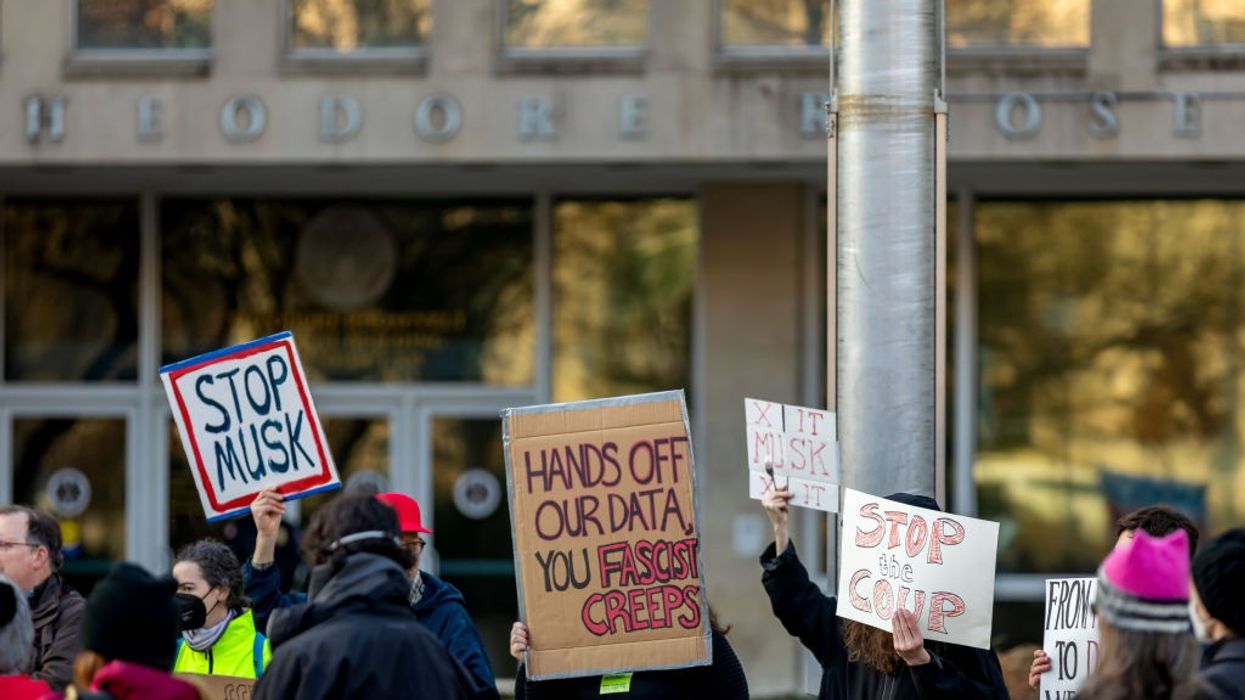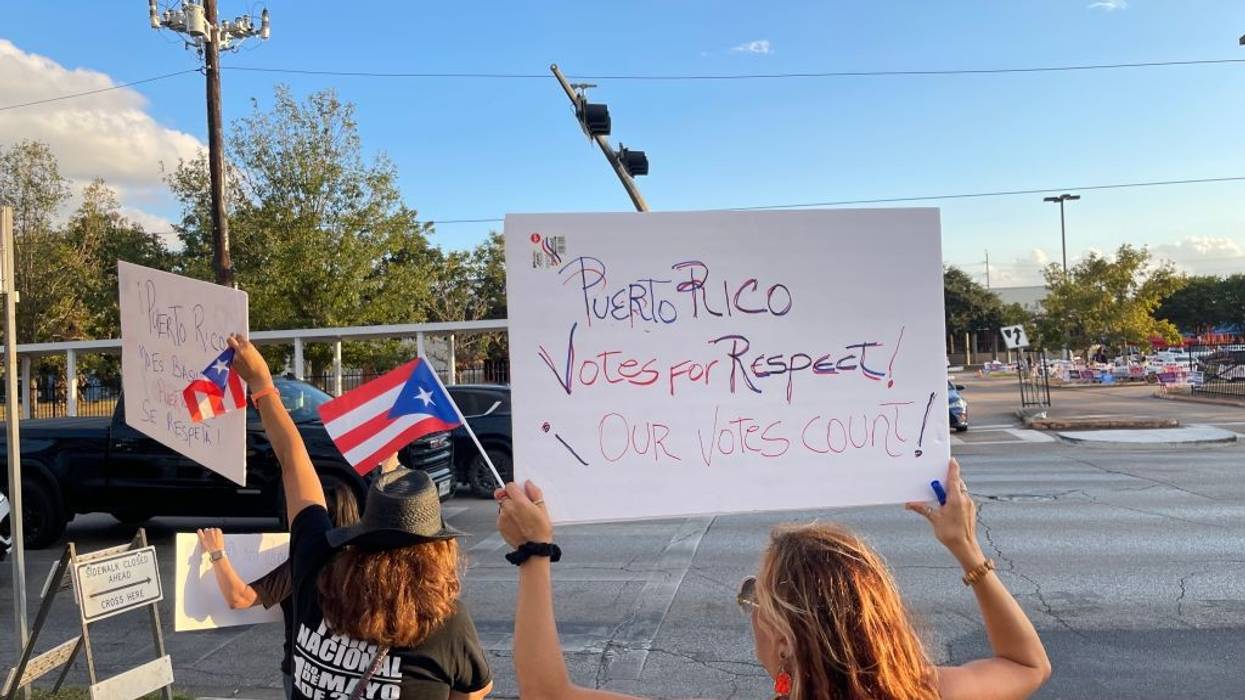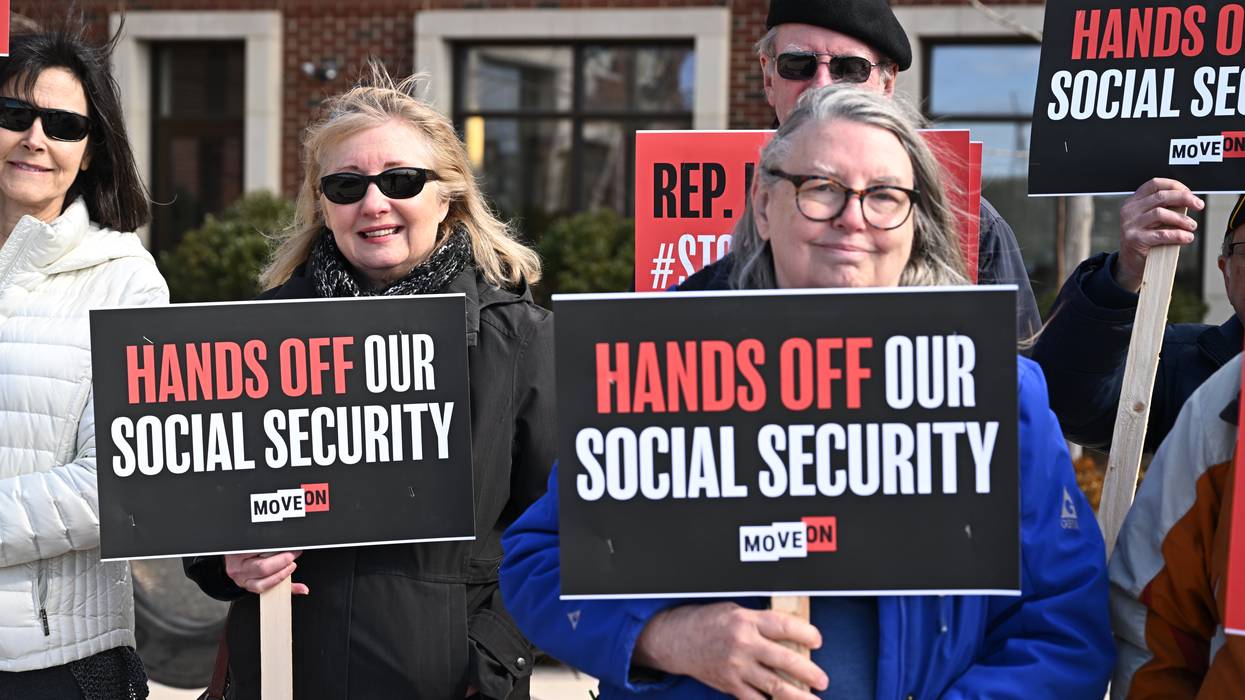Advocates Warn 'Musk Is Stealing Your Personal Social Security Data'
"There is no way to overstate how serious a breach this is. And my understanding is that it has already occurred," said the president of Social Security Works.
News that the acting head of the Social Security Administration left her post this past weekend after facing off with Elon Musk's lieutenants over their efforts to access government records set alarm bells blaring, with advocates warning that the unelected billionaire is moving to seize highly sensitive data.
"There is no way to overstate how serious a breach this is. And my understanding is that it has already occurred," said Nancy Altman, president of Social Security Works, a progressive advocacy organization that warned late Monday that "Elon Musk is stealing your personal Social Security data."
The Washington Post and other outlets reported Monday that Michelle King, a veteran of the Social Security Administration (SSA), left her position over the weekend after clashing with members of Musk's Department of Government Efficiency, an advisory commission known as DOGE that President Donald Trump has unleashed on federal agencies.
The New York Times reported that King stepped down after Musk's cronies sought access to "an internal data repository that contains extensive personal information about Americans."
In King's place Trump installed Leland Dudek, described by the Post as a "manager in charge of Social Security's anti-fraud office," to lead the Social Security agency until a permanent commissioner is confirmed. SSA administers retirement benefits and Supplemental Security Income (SSI) for tens of millions of Americans.
Max Richtman, president and CEO of the National Committee to Preserve Social Security and Medicare, said in a statement that "there is no justifiable reason for Musk and DOGE to have access to Americans' deeply personal information."
"Seniors, people with disabilities, and Americans everywhere of good conscience should be on high alert," said Richtman. "When a dedicated public servant resigns after more than 30 years due to the intrusive activities of Elon Musk and DOGE, that truly is a 'canary in a coal mine' moment."
"If there is an evil intent to punish perceived enemies, someone could erase your earnings record, making it impossible to collect the Social Security and Medicare benefits you have earned."
Altman noted Monday that SSA "has data on everyone who has a Social Security number, which is virtually all Americans, everyone who has Medicare, and every low-income American who has applied for" SSI.
"SSA has comprehensive medical records of people who have applied for disability benefits. It has our bank information, our earnings records, the names and ages of our children, and much more," said Altman. "Older people are disproportionately susceptible to scams. The data at SSA leaking would make the number of scams skyrocket. And, if there is an intent to punish perceived enemies, someone could erase your earnings record, making it impossible to collect the Social Security and Medicare benefits you have earned."
Altman told The Associated Press that "if there is an evil intent to punish perceived enemies, someone could erase your earnings record, making it impossible to collect the Social Security and Medicare benefits you have earned."
Musk's team of dozens of staffers—many of whose identities are not publicly known—have infiltrated departments across the federal government with the stated goal of rooting out waste and fraud, which critics say is merely a pretext for gutting critical programs that Trump and the unelected billionaire oppose. On Monday, advocacy groups filed an emergency lawsuit aiming to stop DOGE from accessing taxpayer data from the Internal Revenue Service.
"Hundreds of millions of Americans across the nation file taxes and provide sensitive, personal information to the IRS and they do so knowing that Congress has put in place protections to safeguard their data. DOGE is taking a wrecking ball to these protections and harming hardworking Americans and small businesses in the process," said Skye Perryman, president and CEO of Democracy Forward. "DOGE must not be permitted to trample on the American people's rights and that is why we are honored to represent our clients in this federal court challenge to put a stop to DOGE's lawless and harmful activities."
Speaking to reporters in the Oval Office last week, Musk claimed without evidence that his team uncovered "crazy things" in a "cursory examination of Social Security."
"We've got people in there that are 150 years old," Musk said. "Now, do you know anyone who's 150? I don't, OK. They should be in the Guinness Book of World Records."
Wired reported that "computer programmers quickly claimed that the 150 figure was not evidence of fraud, but rather the result of a weird quirk of the Social Security Administration's benefits system, which was largely written in COBOL, a 60-year-old programming language that undergirds SSA's databases as well as systems from many other U.S. government agencies."
"Because COBOL does not have a date type, some implementations rely instead on a system whereby all dates are coded to a reference point. The most commonly used is May 20, 1875, as this was the date of an international standards-setting conference held in Paris, known as the 'Convention du Mètre,'" Wired explained. "These systems default to the reference point when a birth date is missing or incomplete, meaning all of those entries in 2025 would show an age of 150."
"That's just one possible explanation for what DOGE allegedly found," the outlet added. "Musk could also have simply looked up the SSA's own website, which explains that since September 2015 the agency has automatically stopped benefit payments when anyone reaches the age of 115."
Martin O'Malley, the former governor of Maryland who served as SSA commissioner under the Biden administration, told the Post that Musk's team "will break" the Social Security system if they're given unfettered access.
"They will break it fast," O'Malley warned, "and there will be an interruption of benefits."
This story has been updated to include a statement from the National Committee to Preserve Social Security and Medicare.


